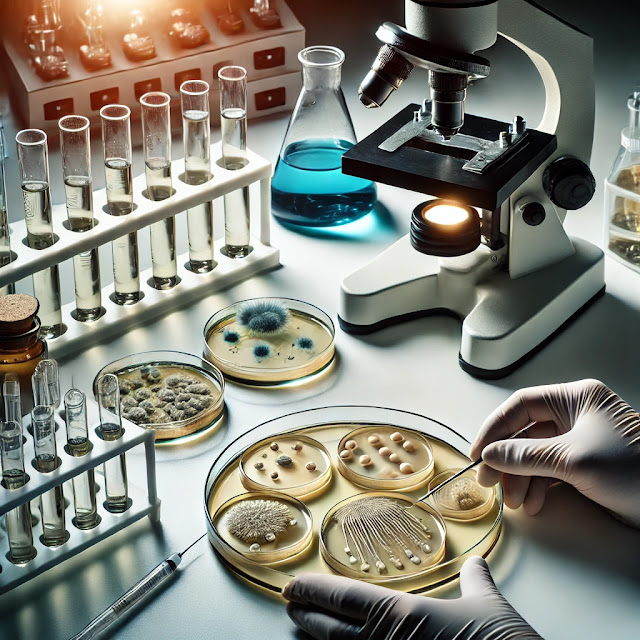Principle of Microbial Assay of Vitamin B12
The microbial assay of Vitamin B12 is based on its ability to support the growth of specific microorganisms that require this vitamin as an essential nutrient for growth. In this assay, the concentration of Vitamin B12 in a sample is determined by measuring the growth response of a microorganism (such as Lactobacillus leichmannii) when cultured in a medium containing the sample. The amount of growth correlates with the concentration of Vitamin B12 in the test sample, and this growth is measured either by turbidity (optical density) or by acid production.
Procedure of Microbial Assay of Vitamin B12
Preparation of the Sample:
- The sample containing Vitamin B12 (such as a pharmaceutical preparation or food product) is diluted to ensure that the concentration of the vitamin falls within the range where microbial growth response is linear.
Preparation of the Medium:
- A growth medium is prepared that is deficient in Vitamin B12 but contains all other nutrients required by the microorganism.
- The specific microorganism (Lactobacillus leichmannii) is then inoculated into the medium.
Standard and Test Sample Preparation:
- A standard solution of Vitamin B12 (of known concentration) is prepared.
- Several dilutions of both the standard and test samples are made to create a range of concentrations.
Inoculation:
- The medium is inoculated with the test microorganism (Lactobacillus leichmannii).
- Standard and sample solutions are added to the inoculated medium in separate tubes or wells.
Incubation:
- The inoculated tubes or plates are incubated at 37°C for a specific period (usually 18-24 hours).
Measurement of Growth:
- After incubation, microbial growth is measured. This can be done either by:
- Turbidity Method: The increase in turbidity (cloudiness) due to microbial growth is measured spectrophotometrically (optical density).
- Acid Production: In some cases, microbial growth can be estimated by measuring the amount of acid produced (via titration or pH change) due to microbial metabolism.
- After incubation, microbial growth is measured. This can be done either by:
Calculation:
- The growth response (either turbidity or acid production) is plotted against the concentration of Vitamin B12 in the standard solutions.
- The concentration of Vitamin B12 in the test sample is determined by comparing its growth response with that of the standard.
Factors Affecting the Assay
- pH: The medium's pH must be optimal for microbial growth.
- Temperature: Incubation temperature (usually 37°C) should be maintained accurately.
- Inoculum size: The correct number of microorganisms must be inoculated to ensure reproducibility.
This assay provides a reliable method for quantifying Vitamin B12 in various samples, including food products and pharmaceutical formulations.













0 Comments
Thanks for your feedback, ll get back to you soon